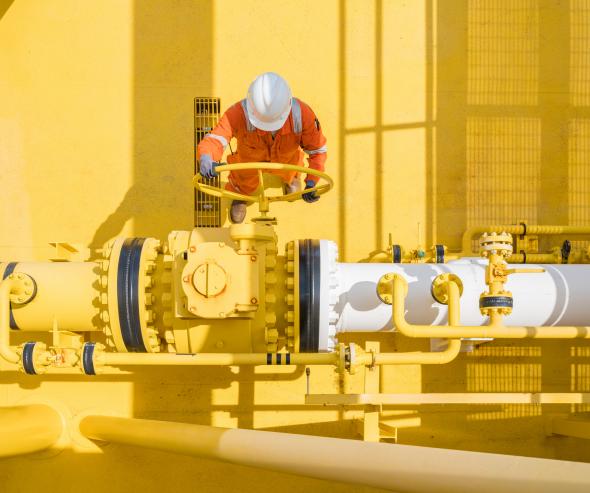The Autorité de la concurrence has begun an in-depth examination into the acquisition of Société des Transports Pétroliers par Pipelines (Trapil) by Pisto SAS

Acquisition of France’s largest pipeline
On 5 November 2019, Pisto SAS, which is active in the petroleum product storage services market, notified the Autorité of its plan to acquire Trapil, a transporter of petroleum products by pipeline in France.
It involves the oldest and largest civilian pipeline network in Europe. The 1,375-kilometre pipeline network, which primarily connects Le Havre to the Paris region (LHP), transports about 20 million tonnes of hydrocarbons per year, the equivalent to 10,000 freight trains per year or, considering only the Normandy-Paris region, more than 1,500 heavy goods vehicles per day[1]. It is connected to two other pipeline systems, four refineries, three shipping warehouses and supplies 30 depots.
Prior to the transaction, the capital of Trapil, which owns and manages the infrastructure, was divided between Pisto SAS (44%), two oil companies (Total, 35.5%, and Esso, 17.2%) and its employees (3.1%).
The proposed transaction consists of an acquisition by Pisto SAS of 30% of Trapil’s shares held by Total, which will retain 5.5%. This means that, for the first time since its creation in 1950, the infrastructure will be “controlled”[2], within the meaning of merger law, by a specific operator, Pisto SAS, which describes itself as France’s leading independent operator in petroleum storage and services. Pisto SAS is controlled by Crédit Agricole, Swiss Life and CNP Assurances.
As part of the examination of the case and after initial consultation with market stakeholders, the Autorité considered that the transaction warranted an in-depth examination phase (Phase 2).
Risks of price increases and discriminatory practices
In the course of the forthcoming in-depth examination, the Autorité will examine the effect of this acquisition on the competitive dynamics of the affected markets, in particular on customers of services for the transport of petroleum products: fees, maintenance of quality and service, etc. The Autorité will pay particular attention to the risks of price increases for the transport of petroleum products by the pipeline that the transaction could entail.
Such behaviour cannot be ruled out at the outset since, unlike most transport or energy networks, the pipeline is not subject to the control of a sector-specific regulator in France.
Furthermore, given the presence of Pisto SAS on the related markets for the storage of petroleum products on both sides of the pipeline (import and distribution depots in the Normandy and Paris regions), the in-depth examination will also aim to determine whether there is a risk of discriminatory practices aimed at favouring its own depots to the detriment of those of its main competitors (Bolloré, Rubis, etc.), particularly in view of the declining trend in the market for the transport of petroleum products in France and medium-term traffic forecasts.
The examination of the case should determine if the pipeline constitutes an essential infrastructure
During the Phase 1 examination, Pisto SAS has already provided a number of points of assessment to shed light on certain aspects of the investigation. However, since certain risks remain, the Autorité shall examine them further in a second phase, taking into account the importance of the infrastructure for the proper functioning of the sector.
The in-depth examination will, in particular, determine whether the pipeline is an essential infrastructure and whether the pipeline management must integrate certain concerns of neutrality in order to ensure undistorted competition in the fuel sector in France.
Should remedies prove necessary to prevent harm to competition, the Autorité will hold a special consultation with stakeholders.
Provisional timetable
The applicable regulatory instruments call for merger examinations to be conducted, in principle, within 65 working days of the start of Phase 2, although this period may be extended if necessary.
The initiation of a Phase 2 examination prejudges neither the existence or otherwise of anticompetitive effects nor the outcome of the clearance application.
[1] http://www.driee.ile-de-france.developpement-durable.gouv.fr/IMG/pdf/PlateletLHPBAT_cle2c33b1.pdf
[2]For the purposes of competition law, the company was not controlled since none of its shareholders could take strategic decisions alone and there was no shareholders' agreement to coordinate taking such decisions.
Contact(s)
